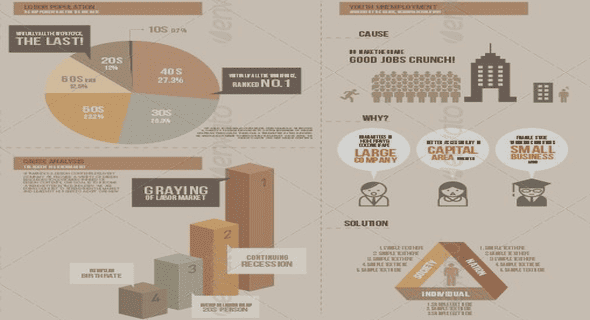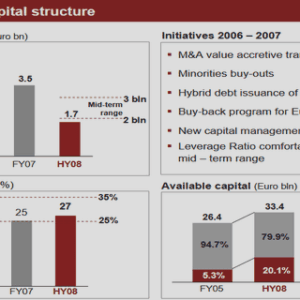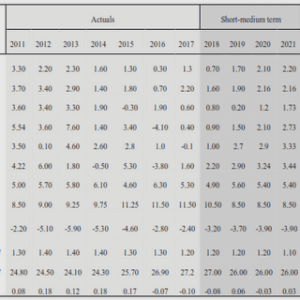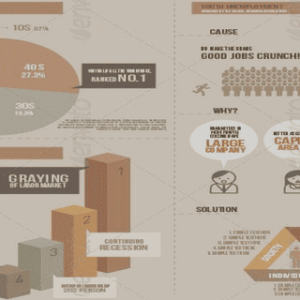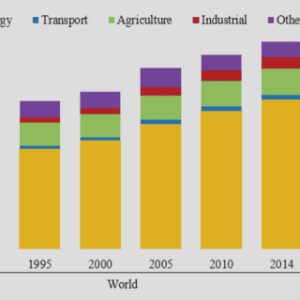(Downloads - 0)
For more info about our services contact : help@bestpfe.com
Table of contents
Main introduction
1 Overview of labour taxation in France
1.1 Tax revenue and labour income taxation in France
1.2 Social security since 1945: creation and evolutions
2 Literature review
2.1 Documenting the increase in inequality
2.2 Explaining the increase in wage inequality
2.3 The impact of wage taxation
3 General problematic
3.1 Pre-tax versus post-tax earnings concepts
3.2 Overall earnings distribution versus top earners
3.3 Administrative data
4 Outline of the thesis
4.1 Fiscal policy and redistribution in France
4.2 Primary inequality and taxation on the labourmarket
4.3 Data
I FISCAL POLICY AND REDISTRIBUTION IN FRANCE
1 L’analyse redistributive des prélèvements obligatoires par microsimulation : méthodologie,
usage et limites
1 Présentation du modèle TAXIPP
1.1 Constitution de la base de données source
1.2 La simulation du système socio-fiscal
2 Analyser l’incidence de l’ensemble des prélèvements obligatoires
2.1 La théorie de l’incidence fiscale
2.2 Les mesures empiriques de l’incidence fiscale
2.3 Hypothèses retenues par le modèle
3 Mesurer la distribution des taux d’effort
3.1 La distribution des taux moyens de prélèvements obligatoires en 2010 35
3.2 Étudier la fiscalité des hauts revenus
4 Une approche qui a pourtant des limites
4.1 Sensibilité aux hypothèses d’incidence
4.2 Conflits dans les sources de données agrégées
5 Conclusion et perspectives
2 French public finances through the financial crisis : a macro and a micro analysis
1 Impact of the financial crisis : the macro picture
1.1 National income
1.2 Labour markets
2 Public finance responses
2.1 Fiscal stance before the crisis
2.2 How did the crisis affect the public finances?
2.3 What was the fiscal response to the crisis ?
3 Policy responses : an opportunity for reform?
3.1 Changes to tax and benefits
3.2 Changes to public spending
3.3 Other structural reforms
4 Conclusion
II PRIMARY INEQUALITY, INCIDENCE AND BEHAVIOURAL RESPONSES ON THE LABOUR MARKET
3 Primary inequality of labour incomes: taxation and technological determinants
1 Labour cost inequalities in France
1.1 Labour cost and social security contributions
1.2 Data
1.3 Labour cost inequalities in France (1976-2010)
2 Revisiting demand-side explanations of inequalities using tax changes
2.1 Supply, demand and wage premiumfor skilled workers
2.2 The standard supply/demand model with taxes
2.3 Results
3 Impact of taxation on wage inequalities
3.1 Can we infer SSC incidence from SBTC?
3.2 Behavioral responses and the impact of taxes on wage inequality
4 Conclusive comments
Appendices
3.A Institutional details on social security contributions and income tax in France
3.A.1 Uncapping of the social security contributions
3.A.2 Reduction of employer social security contributions
3.B Data andmethods
3.B.1 Data and variables
3.B.2 Methodology
3.C Additional Figures
4 Who paid the 75% tax on millionaires? Optimisation of salary incomes and incidence in France
1 Literature
2 Context
2.1 Taxing Labour Income Earners in France
2.2 The 2013-2014 reform
3 Data and descriptive statistics
3.1 Linked employer-employee dataset
3.2 Income tax return data
3.3 Simulation of income and payroll taxes
3.4 Descriptive statistics and graphical evidence
4 Worker-level and firm-level effects on wage
4.1 Wage incidence
4.2 Wages and employment at the firmlevel
5 Optimisation behaviour of the individual
5.1 Conceptual Framework
5.2 Cell-based approach
5.3 Repeated cross-section approach
6 Conclusion
Appendices
4.A Panel regression approach
4.A.1 Building a panel data from administrative datasets
4.A.2 Estimation strategy
4.A.3 Estimation results
4.B Additional tables and figures
Main conclusion
References
